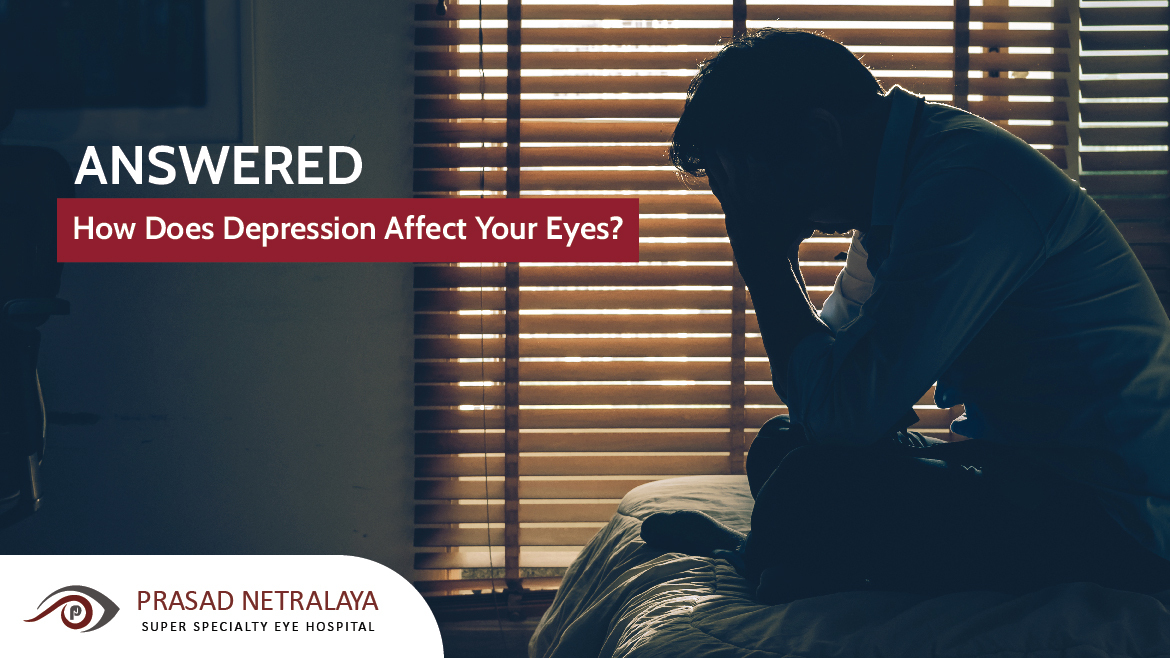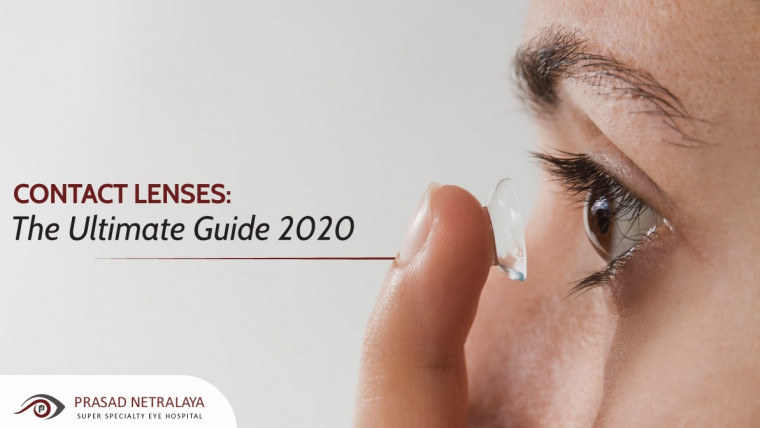Depression needs no introduction. According to a survey by GOQii in 2020, approximately 43% of Indians suffer, or at one point have suffered, from depression. Its troubles are well documented, and despite being classified as a mental disorder, it negatively affects a number of organs in your body. But does depression affect your eyes too?
The answer is yes.
According to a new study, those with depression are more likely to suffer self-reported eyesight loss. Researchers examined data from over 10,000 participants aged 20 and up who participated in the National Health and Nutrition Examination Survey in the United States. According to the study, people who self-reported vision loss had an 11% depression rate, whereas those who did not disclose vision loss had a 5% depression rate.
As with mental health on the whole, there is a lot we still don’t know about depression. But there have been several documented cases of eye problems caused, directly or indirectly, due to depression. Although it’s unlikely to ever cause permanent damage, its effects can be quite painful and interfere with your day-to-day life.
Table of Contents
Here are 5 depression eye problems to look out for:
Sensitivity to light
Depression can lead to, or trigger a bunch of other issues. Anxiety, migraines, panic attacks, sensory overloads, etc. Light sensitivity is a common symptom of a number of these ailments, and can easily affect the person who is in a prolonged state of depression.
Extra dry/watery eyes
People with depression have reported excessively watery eyes as well as dry eye syndrome and the pain that goes along with it. Depression often worsens these eye symptoms, because patients are much less motivated to use therapies and treatments to combat the issues.
Floaters or eye spots
Eye floaters are quite common in people suffering from depression. Either open or closed, they see these little black or grey spots in their vision having the appearance of cobwebs or strings.
Blurry vision
Individuals may suffer a lack of sharpness in their vision, making it difficult to see minute details properly. Depression has been found to impair vision in many cases, and there is a definite correlation between cognitive depression and visual impairment.
A world in grey
A study took place at the Albert Ludwig University of Freiburg in Germany to see if there was a correlation between depression and vision impairments. They gave depressed and non-depressed people a sequence of black-and-white checkerboard designs to discriminate between colours and contrasts. They discovered that people with serious depression (whether or not they were taking medication) had a harder time distinguishing between black and white colours on the checkerboard than people who weren’t depressed.
According to this study, researchers suggested that individuals suffering from depression are more likely to experience a diminished perception of contrasts, leading to ‘seeing the world in grey’.
What can you do?
First and foremost: The first thing to do is to figure out the root of your vision problems, and if depression is a potential factor. Certified developmental optometrists can assist patients to rule out vision impairments as a result of depression and create personalized treatment regimens. Patients can regain their vision with the right exercises, medication, therapies, and other treatments.
An optometrist can help you manage your symptoms and provide appropriate treatments for eye problems. But as for depression itself, you must consult a mental health professional as soon as possible. Here at Prasad Netralaya, one of the best eye hospitals in Mangalore, if not Karnataka, our experienced and highly-skilled doctors are always on call to assist you with depression eye problems.
Visit our website to schedule a consultation or call us on our toll-free number 1800-4251-919 or our mobile no. 09513576565 to book a quick appointment.
Dr. Vikram Jain, M.S. had his medical training (MBBS) from Kasturba Medical College, Mangalore, India. He did his master’s in Ophthalmic surgery from Kasturba Medical College, Manipal. He currently manages the Glaucoma department of Prasad Netralaya hospital.


